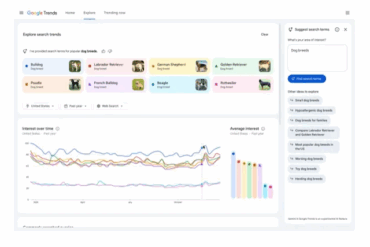By
If you are the founder, owner or CEO of the business you run, you need to think of yourself as the brand. Your marketing thought process needs to include you—not just what you communicate through your business, but all avenues of your personal communication as well.
When you think of Mark Zuckerberg, you probably think of Facebook. Everything Mark does will be a reflection on his company. Elon Musk has been in the headlines with his on-and-off-again saga of purchasing Twitter. With each move in the press, you can watch the value of Tesla fluctuate.
But it’s not just the founders. Just read the headlines of how the CEO of Disney, Bob Chapek, handled a law that was proposed and later passed in Florida. At first he didn’t weigh in, then wrote a memo explaining why he didn’t speak up, followed by an apology. After a public exchange with Florida Governor Ron DeSantis, Florida voted to repeal the Reedy Creek Improvement District, which could have some implications for Disney, the largest land owner in the district. This would mean that Disney would have to seek approval from the local government for any park expansion, including budget approval.
What does this have to do with branding? Everything. Consumers today care about what company founders and CEOs think, and though your thoughts might be personal, they will affect your business. With this in mind, here are some tips I’d like to share on representing yourself as the brand:
Don’t weigh in on political or hot topic issues.
I realize this is not a popular opinion in today’s environment. As I mentioned, customers want to know what you think. But what is the real benefit to adding your thoughts on a hot topic issue? Nothing. The 24/7 news cycle moves on quickly to the next story, but if you insert yourself into that cycle, you might find that it lasts longer and could damage your company’s brand.
There are some issues you might feel compelled to speak up about, and if you feel enough conviction about it, you should have that freedom. Just know you run the risk of alienating 50% of your customer base.
Your personal social media is an extension of your company’s brand.
You may have all your personal social media accounts marked as private, but nothing is private online. All it takes is one follower or friend to take a screenshot and share it on the public interwebs to cause damage.
You cannot think of your personal social media as something separate from your public accounts or your company’s accounts. Employees might get away with messages like, “my opinions are my own and do not necessarily reflect those of my employers,” or “retweets do not equal an endorsement.” But you are the leader of the company. You set the tone.
As a side note, employees have gotten fired for personal social media posts, so even if you are not the owner or CEO of the company, you might want to think long and hard before you tweet out a controversial statement.
This doesn’t mean you can never post personal content online. In fact, your customers like to know you have a personal side. Some of the biggest engagements I read on LinkedIn are from personal stories, when leaders share a photo of their family with a caption that reads something like, “this is why I work hard.”
Embrace your role and be the face of your company.
Don’t be afraid to be out front promoting your company. People do business with people; show them you are an expert in your field.
This all gets down to content marketing. Hire a good public relations company to get you on TV and radio shows, podcasts, and interviews in trade publications. The interviews can be shared online, giving you third-party validation. You are not bragging about your accomplishments or your company; you are simply answering questions. Create content of value on your social media pages. This includes videos, blogs and resharing other leaders’ content that fits your brand.
Pay attention to the details. Take the time to update your social media profiles to make sure they reflect who you are today and the branding of your company. When was the last time you updated your Twitter profile or the information on your LinkedIn work history? All that information is searchable and helpful for your branding.
Often as leaders, we want to separate our personal life from our work life. And there are ways you can unplug with family and friends. Just know that place is not online. Everything you post online will be held against your company in the court of public opinion.
Feature Image Credit: getty
By
CEO of Centerpost Media and host of “Create. Build. Manage.” Centerpost is a content marketing agency that owns BizTV and BizTalkRadio. Read Scott Miller’s full executive profile here





